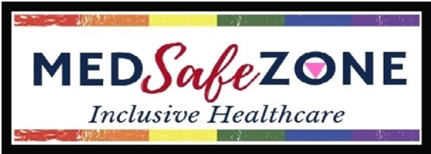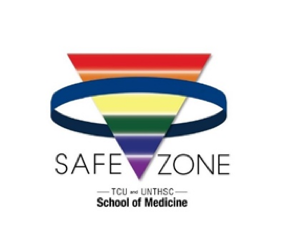Unconscious Bias Training for Health Professions
At academic medical centers, unconscious biases can compromise diversity and inclusion efforts in admissions, curriculum development, counselling, and faculty advising, among other functions. By learning how to identify and confront unconscious bias in yourself and others, it is possible to mitigate the impact and promote respect for all groups. Unconscious biases are automatic, learned, unintentional yet deeply ingrained stereotypes that can affect our behavior.
Beginning with a highly experiential unconscious bias workshop conducted in conjunction with the TCU Office of Diversity Initiatives, participants will gain a deeper understanding of implicit bias with a focus on: How unconscious biases develop, influence perceptions and decision making, and impact institutional diversity and inclusion efforts.
The most effective tool available for testing one’s own unconscious bias is the Implicit Association Test (IAT), created and maintained by Project Implicit, a consortium made up of researchers from Harvard University, the University of Virginia, and the University of Washington. The IAT was created more than 10 years ago and has now been used by millions of people in over 20 countries. Researchers at these three schools, as well as others, have used the test to study many aspects of organizational and social performance, ranging from healthcare decisions to the operations of the criminal justice system.
The School of Medicine contracted Project Implicit to provide consulting services on implicit bias by administering the Implicit Association Test (IAT) to faculty, staff and students to measure attitudes and beliefs that may be unwilling or unable to report.
Implicit Bias Series
This series is a six course online training series designed to increase awareness of implicit bias and reduce its impact at the SOM.
This series included the following offerings:
- Session One – Introduction to Compassionate Practice
- Discuss implicit bias and its potential impact on decisions and outcomes
- Identify mindsets needed to foster a culture of inclusivity
- Identify barriers and benefits to having diversity discussions
- Recognize the importance of dialogue in building relationships and expanding perspectives across difference
- Engaging in conversations to broaden your perspectives
- Commit to action to fostering inclusivity on their teams and across their interactions
- Identifying Microaggressions in Medical Training
MED Safe Zone Training

Facilitated by The Safe Zone Initiative
This training is designed to introduce faculty, staff, and medical students to the identities and experiences of lesbian, gay, bisexual, and transgender, and queer (LGBTQ+) people and to increase awareness and knowledge of health disparities experienced in the LGBTQ+ community.
This training involves face-to-face time and encompass activities and discussion around:
- LGBTQ+ inclusive and respectful language
- The process of coming out
- Understanding sexual and gender identity
- Understanding how to act in an academic environment
- Where to go for help
Health disparities and issues facing the LGBTQ+ community

Pronoun Fluency Workshop
This workshop is designed to give attendees an opportunity to develop familiarity with pronoun usage and strategies of address. Do you have questions about non-binary pronouns? Do you keep calling someone in your life by the wrong pronouns? Are you unsure how to talk to new people without gendering them? This workshop includes practical, hands-on opportunities to improve your knowledge or usage of pronouns, especially if you struggle to get other people’s pronouns right. We will also share best practices for inclusion of this information in classroom and group settings. All genders and identities are welcome.